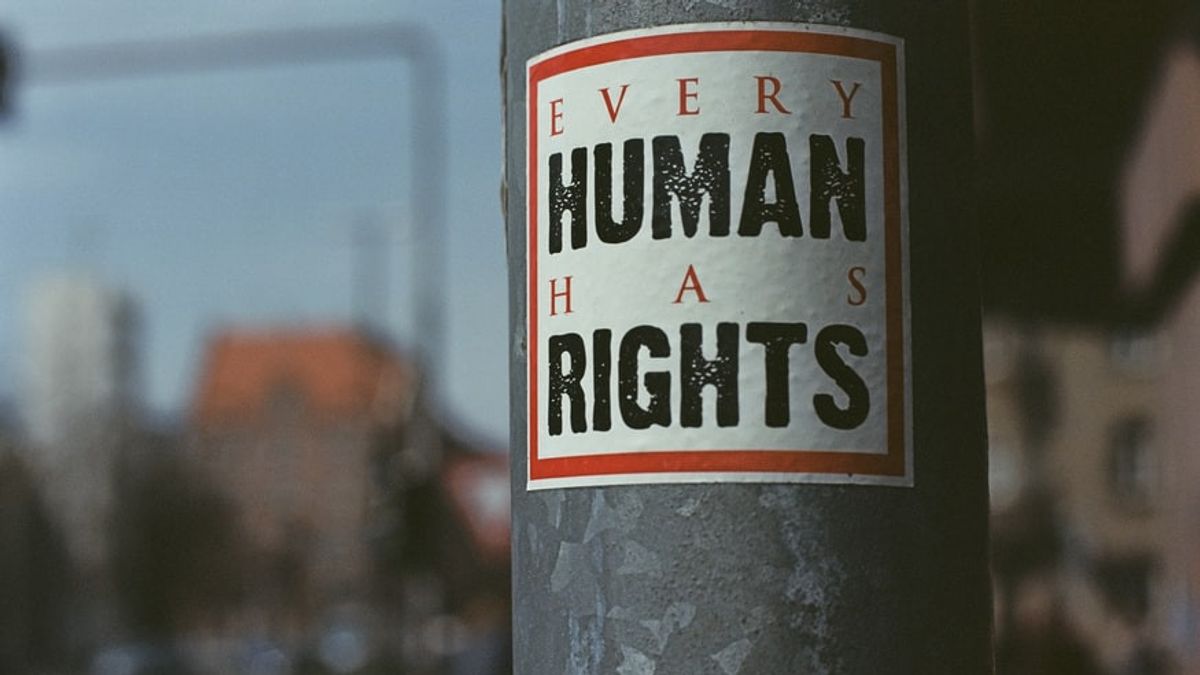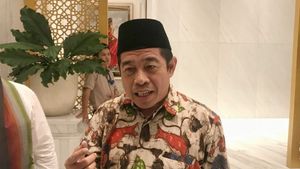JAKARTA - Every December 10, the world commemorates Human Rights Day with a different theme. This moment is to commemorate the birth of the Universal Declaration of Human Rights (UDHR). And this year's theme is Equality - Reducing inequalities, advancing human rights or Equality - Reducing inequality, advancing human rights.
Citing the official United Nations (UN) website, the theme of World Human Rights Day 2021 commemorating World Human Rights Day refers to the Universal Declaration of Human Rights (UDHR) issued by the UN General Assembly on 10 December 1948. A plenary session was then held on 4 December 1950, the UN General Assembly passed resolution 423(V) inviting all member states of the United Nations and other interested organizations to commemorate the Universal Declaration of Human Rights and commemorate Human Rights Day every 10 December. Human rights commemoration at that time was motivated by the atrocities that occurred during World War II.
Meanwhile, the Universal Declaration of Human Rights contains basic rights and freedoms that are the rights of all people. Every individual who resides anywhere, without distinction based on nationality, place of residence, gender, national or ethnic origin, religion, language, or other status is guaranteed the right.
Every year the United Nations commemorates Human Rights Day and chooses a theme that draws attention to certain aspects of human rights enforcement efforts. Themes include ending discrimination, fighting poverty, and protecting victims of human rights violations.
Over time, not only the United Nations has commemorated Human Rights Day, but various countries have also commemorated it. Since 1968, the United Nations has regularly awarded the United Nations Award in the Field of Human Rights on every commemoration of World Human Rights Day.

HAM logo (Source: Wikimedia Commons)
Human Rights Day is also a time of various protests and demonstrations in support of human rights, especially in countries that are often hit by human rights violations. In particular, violence and the arrest and imprisonment of protesters during the Human Rights Day demonstration in Kao-hsiung, Taiwan, in 1979 contributed to the democratization process in Taiwan.
Raúl Alfonsin, who took office as President of Argentina on December 10, 1983, ended the military dictatorship that had ruled the country since 1976. The election that day for inauguration was linked to human rights abuses committed during the dictatorship. Since then, all presidential inauguration has taken place on December 10.
In addition, there are other events that occur during the commemoration of Human Rights Day. On Human Rights Day 1989 a series of massive demonstrations took place in Mongolia which helped hasten the collapse of the country's communist government the following year. In another interesting event, whether coincidental or not, former Chilean dictator Augusto Pinochet, who was known for committing human rights abuses committed during his authoritarian rule, died of a heart attack on December 10, 2006 at the age of 91.
Affirming the symbolic value of Human Rights Day, Nelson Mandela signed his country's first permanent post-apartheid constitution on 10 December 1996. At the same time, since 1995, South Africa has commemorated Human Rights and has become a national holiday every 21 March. The date is the anniversary of the Sharpeville massacre that took place in 1960.

Not all of them ended with the enforcement of human rights, there were heartbreaking events during the commemoration of Human Rights Day. On Human Rights Day 1997, Soviet authorities arrested four alleged dissidents and prevented at least 20 others from attending a peaceful protest against communist political repression. According to some protesters, Soviet authorities threatened the 20 people if they continued to take part in the protests. The incident was testament to the hard line taken by the Soviet government against any political protest.
Andrei Sakharov, the most famous Soviet political dissident, refrained from attending protests because he feared violence. However, the protest was peaceful and smooth. Nevertheless, the Soviet action is a chilling reminder that political freedom in Russia is far from being a reality. Human rights abuses in the Soviet Union continued to be a major problem in US-Soviet relations well into the 1980s.
*Read other information about TODAY's HISTORY or read other interesting articles from Putri Ainur Islam.
TODAY'S HISTORY MoreThe English, Chinese, Japanese, Arabic, and French versions are automatically generated by the AI. So there may still be inaccuracies in translating, please always see Indonesian as our main language. (system supported by DigitalSiber.id)









